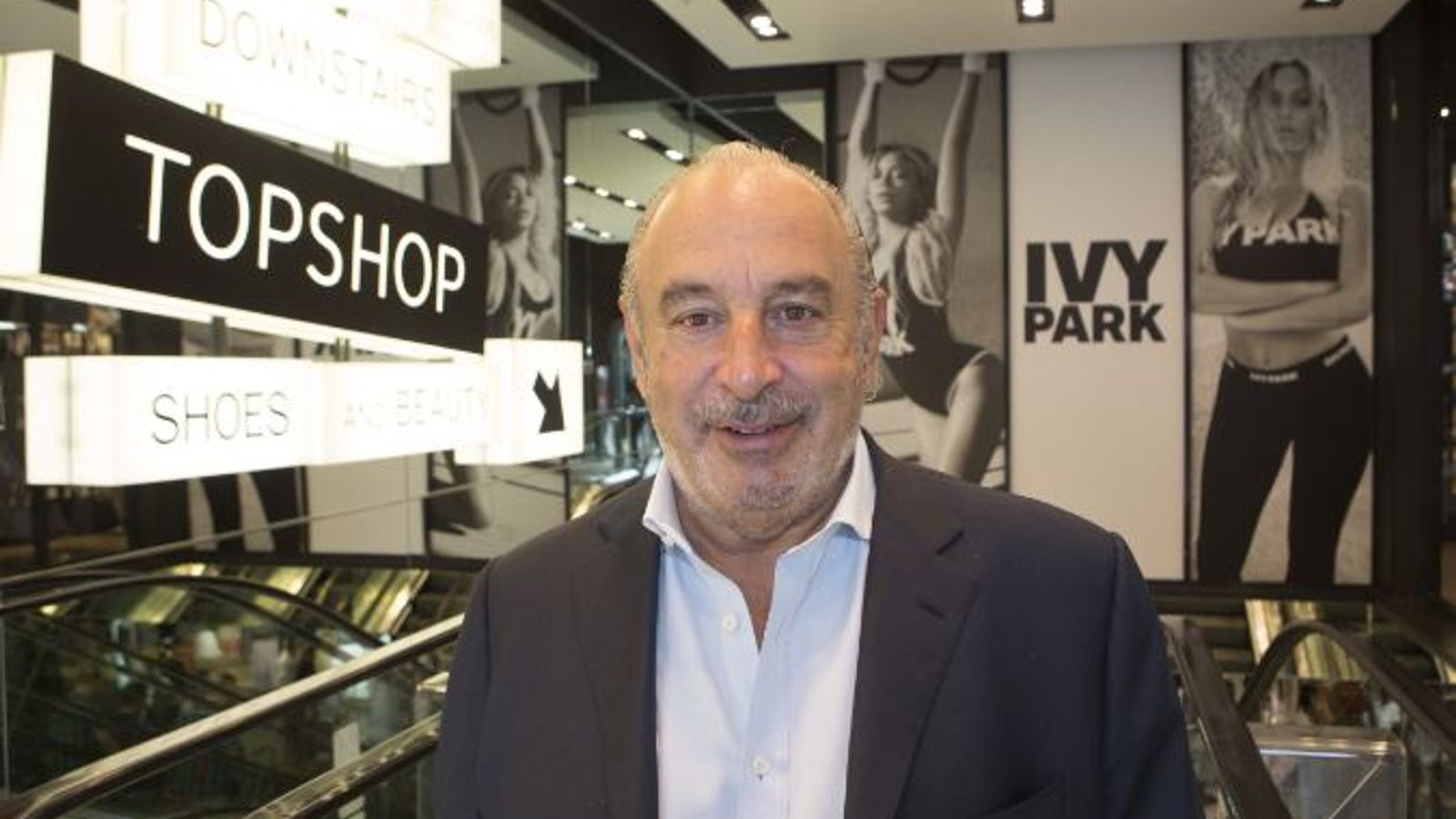The high street tycoon Sir Philip Green is this weekend trying to secure tens of millions of pounds in fresh funding to keep his TopShop empire afloat.
Sky News has learnt that Arcadia Group has approached several potential lenders about borrowing roughly £30m to prop up the business after seeing its pre-Christmas trading plans wrecked by the second English lockdown.
Talks with a number of parties are understood to be ongoing, and a source close to one of the parties approached said they believed this weekend that an agreement to secure the money could be close.
Without further financial backing, it will raise renewed doubts about whether Sir Philip’s empire can survive the coronavirus pandemic.
Arcadia employs about 15,000 people, having announced roughly 500 head office job cuts earlier this year.
The pensions regulator and lifeboat are thought to be closely involved in the talks about the new financing.
Like numerous other high street retailers, Arcadia – which also owns Burton and Dorothy Perkins – has seen its balance sheet torn to shreds by the impact of the pandemic.
The company’s stores in Scotland, Wales and Northern Ireland are open, but the bulk of its more than 500 sites are currently closed owing to the month-long lockdown in England.
The Sunday Times reported in September that Sir Philip had put Burton’s former headquarters in central London up for sale for about £80m.
Since the start of the pandemic, Arcadia has paused the payments it makes to its pension scheme each month, but these have since resumed.
The tycoon has also considered a string of asset sales to raise funds.
He also furloughed more than 14,000 staff, relying on the government to pay the bulk of their salaries, like many other retailers.
Arcadia came close to collapse nearly 18 months ago, when it narrowly secured creditors’ approval for a company voluntary arrangement aimed at restructuring its finances.
As part of that deal, pension stakeholders provided their support in exchange for an overall package of assets worth more than £400m, some of which comprised contributions over a three-year period.
Some of that funding could be jeopardised if Arcadia was to fall into administration.
Arcadia’s fate is also partly intertwined with that of Debenhams, the department store chain where many of Sir Philip’s concession outlets are based.
A liquidation process at Debenhams is likely to get underway shortly if a sale of the business cannot be agreed.
Like its rivals, Arcadia’s brands have been hit by shifting habits among shoppers and growing consumer caution.
It has been a tumultuous period for Sir Philip, who for years was feted as the king of the high street, but whose reputation failed to recover after the collapse in 2016 of BHS.
His sale of the department store chain a year earlier to Dominic Chappell, a former bankrupt who was recently jailed for tax evasion, culminated in Sir Philip having to contribute more than £360m to fund its pension deficit.
The tycoon’s miserable period has not been restricted to the performance of his business interests.
He also became embroiled in a storm over his behaviour towards Arcadia employees and his use of non-disclosure agreements to prevent former workers discussing their severance packages.
Arcadia declined to comment on Saturday.
